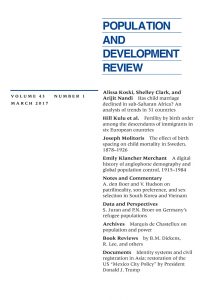Leaning In and Working Together: The Leanin.org "Circles" Initiative
Sheryl Sandberg’s book, Lean In: Women, Work, and the Will to Lead, has created quite the buzz in the media, drawing accolades and criticism from widespread analysts, academics, feminists, business people, journalists, etc. Sandberg, the COO of Facebook, contends that the norms of femininity prevent women from gaining success in the workplace. While insufficient work and family policies are obstacles for women, one major, often overlooked, barrier is the rigid boundaries of masculinity and femininity, which hinder men’s participation in family and relationships and women’s drive in the workplace. Sandberg encourages women to “lean in” to their own success, to work hard and to defy the norms that hold them back.
While some praise Sandberg’s strong business sense and work ethic, others criticize her claim that women are their own biggest obstacles to success in the workplace. As a sociologist and a feminist, I am skeptical about her assertion that women hinder their own progress. In addition to a cultural shift in ideas about women’s leadership and business skills, we need stronger work and family policies. However, I am intrigued by her claim that cultural norms about masculinity and femininity are a major part of individual work and family issues. This seems like an obvious claim, yet a hard problem to solve. How do we change cultural ideas about what men and women can and should achieve in the workplace and in the home?
Sandberg has provided an outlet to start this change with the website, leanin.org. The website encourages women to join “circles,” or close-knit, supportive groups in which women can share the trials and tribulations of the workplace and give each other tips on how to gain more success. The website includes instructions for how to set up and to facilitate a circle. The goal is to get women to engage with each other in order to build successful careers and to manage their work and family tensions; women working together can produce social and cultural change.
While the circles project may not be the only answer to women’s work and family issues, I think they are a good endeavor. The idea of circles strikes me a very feminist initiative. Feminism grew out of women working together, starting from their experiences to produce greater gender equality. The circles project continues this tradition, creating the opportunity for real women to benefit as they navigate the tough terrain of work and family.
Yet, I am concerned that the focus of this circle initiative is to make women better workers. Gender equality requires more than simply allowing women to rise to the level of men in the workplace; it also means valuing work that has traditionally been coded as “feminine” (housework, childcare, etc). While this does not seem outside of Sandberg’s vision (in her book, she stresses the need for a strong partner), the circles initiative could easily slip into this framework. Still, it will be interesting to see the effects of women engaging with one another through the leanin.org forum.
Suggested Readings:
Wharton, Amy S. 2012. “Work and Family in the 21st Century: Four Research Domains.” Sociology Compass 6(3): 219-235.
Correll, Shelley J., Stephen Benard and In Paik. 2007. “Getting a Job: Is There a Motherhood Penalty?” American Journal of Sociology 112 (5): 1297-1339.






1475-6781/asset/JSS.gif?v=1&s=377bb8e0c3d0fcf201f301ded7cf610142072c3e)
1540-6210/asset/society_affiliation_image.gif?v=1&s=812a48e1b22880cc84f94f210b57b44da3ec16f9)
1 Response
[…] Lens. Cheryl Llwellyn explores Leanin.org and Candace Smith talks corrections and […]